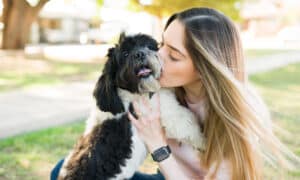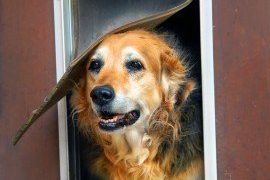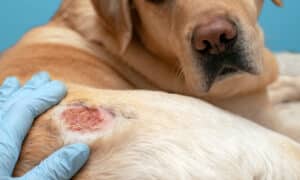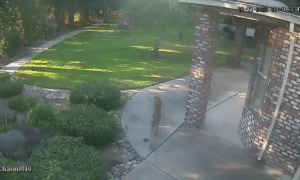“This post contains affiliate links, and I will be compensated if you make a purchase after clicking on my links.”
Congratulations on your decision to bring a new member of the family into your home!
As exciting a time as it is for first time dog owners, you have to understand that caring for an animal requires full commitment for his life. Dogs are amazing companions and can be lots of fun, but they’re not playthings to be easily left tied out in the yard just to be given attention when you’re in the mood. As the dog’s new owner – or as we like to say, parent, you have to consider him a member of the family. Your dog should be provided with the same care, respect, and consideration as you would offer to your other family members. Expect that your pet will greatly depend on you to attend to his needs, and later to teach him to become a loving, faithful companion at home.
Beginner’s Guidelines
To help make the experience of first time pet parenting a pleasant one for you and your dog, consider the helpful tips below:
- Instead of an adult dog, consider bringing home a puppy. Because puppies are regarded as clean slates with no previous dog training, it may be easier to teach them the appropriate behaviors. With your inexperience, the seemingly difficult task of consistent training will become simpler.
- Teach your new puppy good manners right from the start. Puppies only know one thing- to act like puppies. And they are, let’s admit it, awfully cute doing so! However, if you let them nip, bite, and misbehave, you will only be reinforcing their mischief. You don’t want to end up with a pet that is not good to be with around, or worse, which is dangerous or a threat. So enroll yourself and your new puppy in a dog obedience course or simply grab a good book about dog training so you can teach your new bundle of joy some commands.
- Choose a breed that is more submissive as a first time dog. Most dog breeds will typically have either a dominant or submissive personality. Because dominant dogs such as those coming from guarding and sporting lines can be difficult to control, especially for new owners, then pick the submissive breed that tends to be more eager to please you, and thus much easier to train.
- Never hit your puppy; just make use of verbal commands. When your dog misbehaves, use a low, gruff voice to firmly yet gently scold him. Never yell, or worse, strike as this will only frighten him and make him distrustful of humans. Use a delightful high-pitched voice when praising him for behaving well.
- Know more about dog nutrition and health. To help your puppy achieve optimum growth and develop a healthy immune system, feed him a high-quality diet. Research your options – from basic dog kibble, to premium human-grade dog food, to raw and homemade diets – choosing the right food for your dog can make a world of difference in his health and even his behavior. Bring your dog to the vet for regular check-ups so you can look into any potential health complications early.
- Socialize him early. Expose your puppy to various people, animals, sights, and sounds during puppyhood so you can help him become less fearful of unfamiliar people and experiences as he matures. Take your dog out for car rides and other new fun activities while they are young.
- Be patient as they potty-train. Like small children, puppies also tend to either take the potty-training right or wrong; sometimes appearing like it will never happen. To help your pet to quickly learn the proper routine, try confining him in crate or any small space when you won’t be able to supervise him. Because dogs naturally go back to the spot that has been previously dirtied with feces or urine, immediately clean up all his accidents using a urine removal product.
- Offer your pup his own toys. To prevent your dog from chewing up your new shoes, never hand him your old ones to have fun with. Give your pet his own safe chew toys to play with. Once you catch him chewing on an object that is not his, just replace the item with one of his own until he figures out the difference. Do not forget to praise your dog the moment you see him messing around with his own toys, and not your belongings.
- Handle him with care. Be gentle with your pet. Do not let anyone to roughly play with him as he needs to understand that all touch is good. Allow your dog to get used to having his feet, legs, mouth, ears, and other body parts held so he does not get shy or frightened when being handled. Otherwise, he might be difficult to even touch during vet visits or grooming sessions.
- Protect your puppy from any household hazards. Look around your home as well as yard to check on potential dangers. Tuck electrical cords away, transfer household chemicals and cleaners to high shelves, put away toxic houseplants, and pick up small objects or toys as these can choke him when eaten.
























Hey there! I’m at work surfing around your blog from my new iphone!
Just wanted to say I love reading through your blog and look forward to all your posts!
Carry on the fantastic work!